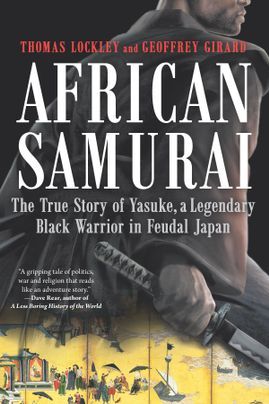What do you think?
Rate this book


480 pages, Paperback
Published April 30, 2019
The good: (1) the information presented was interesting, (2) the authors listed quite a few sources along with notes in the back, and (3) I think I learned a lot about medieval Japan. (That adds up to three stars, I think.)
The bad: (1) this wasn't so much a biography of Yasuke — the title character — as it was historical fiction extrapolated from the handful of known facts about Yasuke and (2) most of the book was a history of Japan in the late 1500s CE, with a few forays into the deeper past. From what I gather, based on the authors' notes at the end, the known facts about Yasuke would fill only half a dozen pages. Though the actual story of this African man transplanted to Japan by the Jesuits would no doubt be extremely fascinating, it simply wasn't documented at the time (not enough to fill an entire book).
I think this is the third book I've read in the past couple of years that purports to be biography but simply didn't have enough source material to fill the pages; the other two were Never Caught (about Ona Judge, a runaway slave) and The Three Mothers (by Anna Tubbs). There really ought to be a note on the cover and/or in the description, warning the reader ahead of time that "much of this is assumed; we simply don't know."